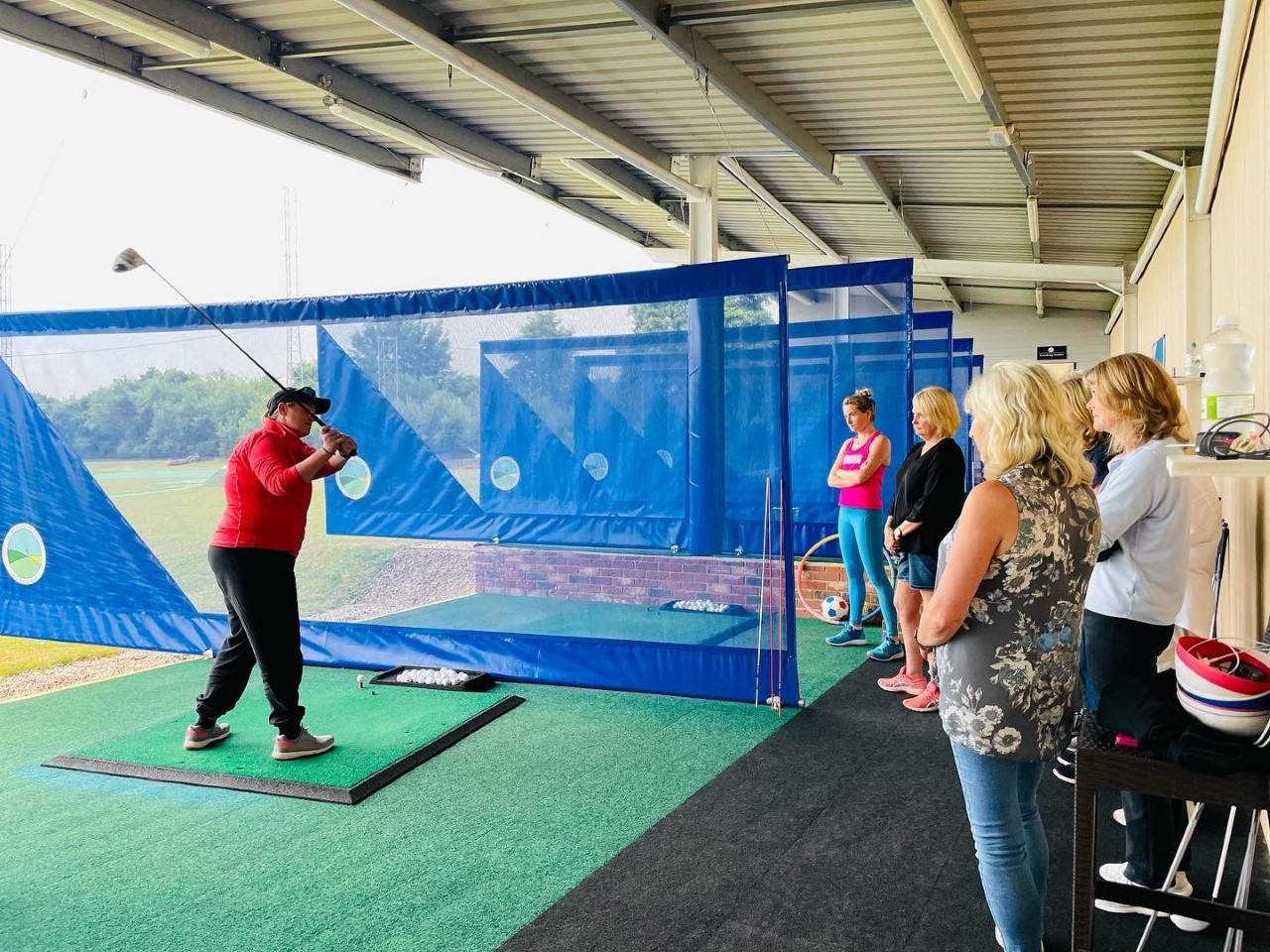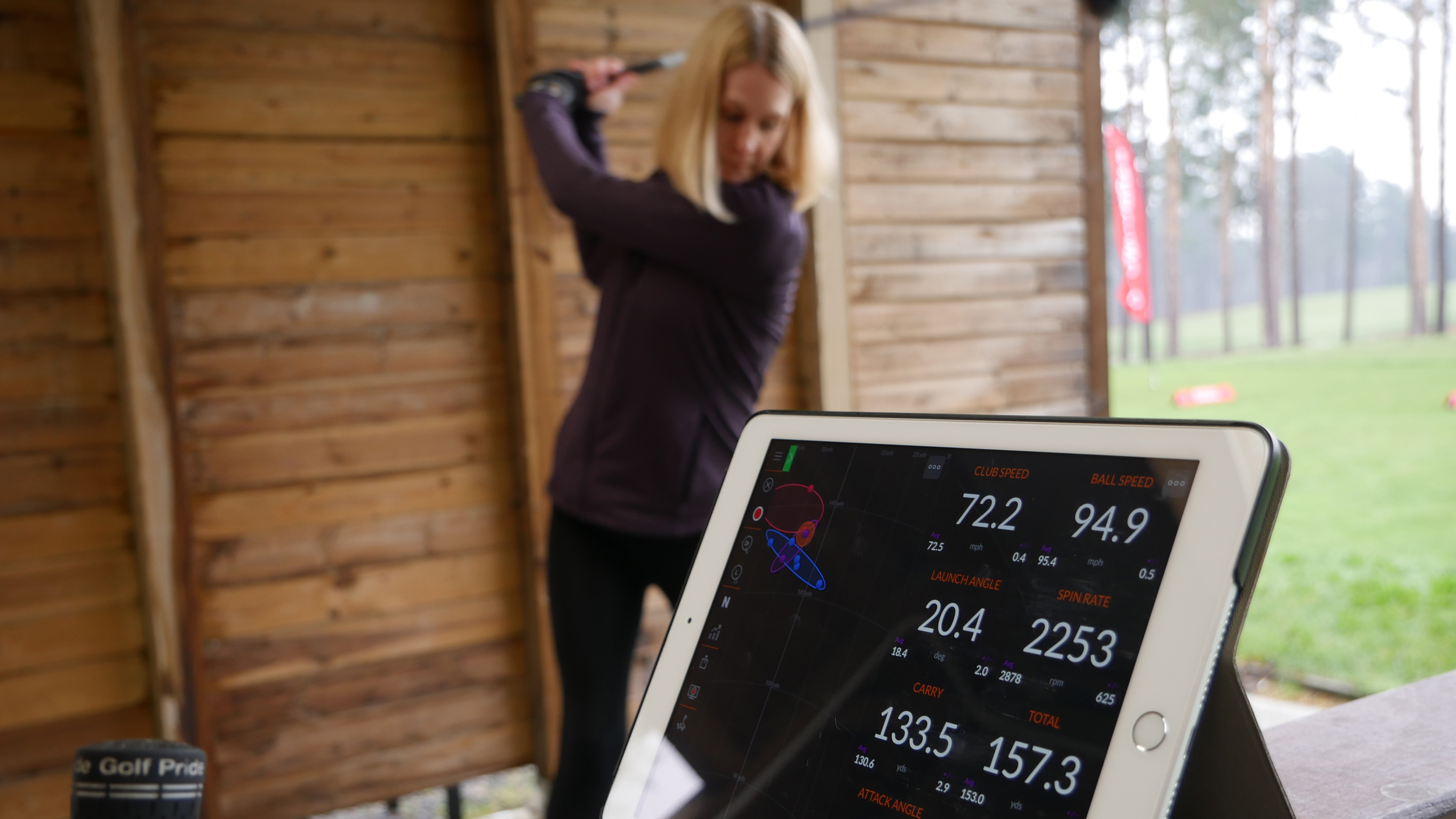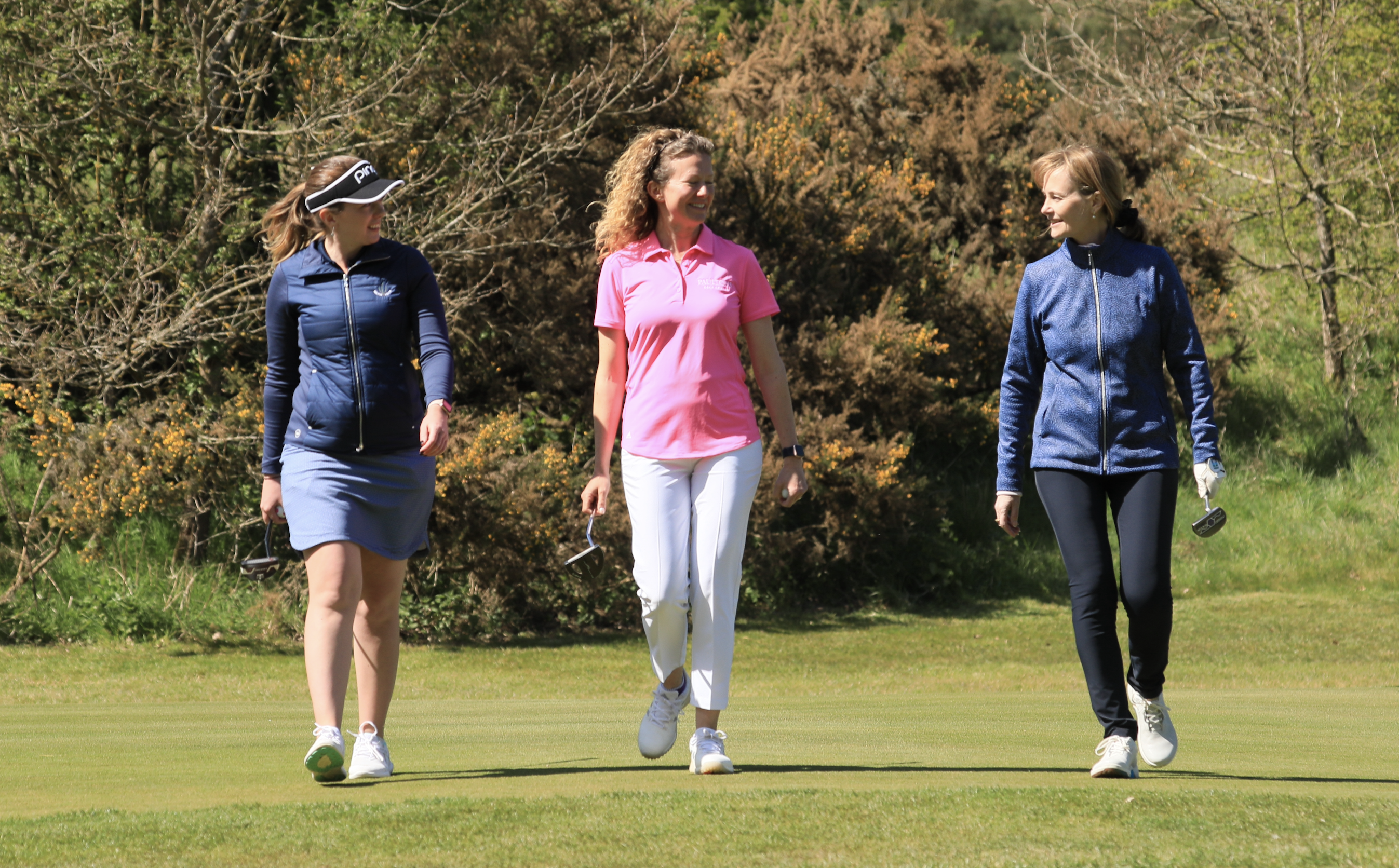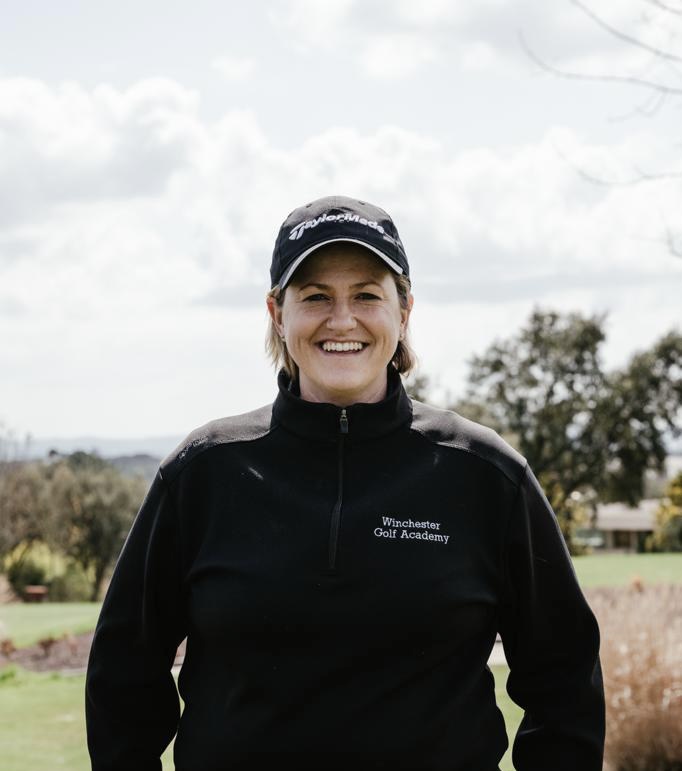7 Ways Women Self-Sabotage Their Golf
PGA professional Emma Booth explains why female golfers are often their own worst enemies and unable to perform to the best of their abilities


Subscribe to the Golf Monthly newsletter to stay up to date with all the latest tour news, equipment news, reviews, head-to-heads and buyer’s guides from our team of experienced experts.
You are now subscribed
Your newsletter sign-up was successful
Want to add more newsletters?

Delivered daily
Daily Newsletter
Sign up for all the latest tour news, gear reviews, head-to-heads and buyer’s guides plus features, tips from our top 50 coaches and rules advice from our expert team.

Once a week
Kick Point
Sign up to our free Kick Point newsletter, filled with the latest gear reviews and expert advice as well as the best deals we spot each week.

Once a week
Women's Golf Edit
Sign up to our free newsletter, filled with news, features, tips and best buys surrounding the world of women’s golf. If you’re a female golfer, you won’t want to miss out!
Self-sabotage: To behave, especially habitually or compulsively, in a way that interferes directly with one’s own goals, well-being and relationships.
Often when we think of self-sabotage we envision procrastinating over tasks or crashing our diet with treats, but this behavior has many forms, and you may not even realise you are doing some of them.
Why Do We Self-Sabotage?
Self-sabotage is often a coping mechanism in stressful situations, and if you struggle with negative self-talk - and who doesn’t on the golf course - it’s a way of making our inner beliefs align with our reality.
To use a golfing example: you're on a par-3 with a water hazard on the right; you hit your ball in the hazard last time, so you just know that you are going to do it again.
Where does it go? Splash! You were right - you knew you’d do it, and you did, but where has being right got you? A few extra shots on your scorecard, that’s where.
We use this behavior loop as a form of self-defense so we feel in control of our failure. Golf being a game of mistakes makes it all too easy to fall into this trap.
As a female golfer and a coach of many women, here are some of the ways I find women can self-sabotage on the course.
Subscribe to the Golf Monthly newsletter to stay up to date with all the latest tour news, equipment news, reviews, head-to-heads and buyer’s guides from our team of experienced experts.
Disclaimer: these are my own personal observations from over the years and things I know I am personally guilty of, so if they do not apply to you, that’s wonderful news!
And for the gentlemen reading, you may find a few that resonate with you, too.
Afraid To Take Up Space

I find this particularly affects women who are beginners and new to the course and club environment.
The first few times playing on a golf course can be hugely overwhelming. Not only are you worried about hitting the ball, there is so much to learn about how to get around.
Other golfers playing behind is something that can really rattle the nerves.
I find women to be far more nervous starting out on the course than men and this may well be due to how from such young ages we are conditioned to take up less space, accommodate and prioritise other people's enjoyment over our own.
Every time I take my daughters clothes shopping the slogan t-shirts are there to remind them to ‘Be Kind’, ‘Smile’ and ‘Be Grateful’ compared to the boy’s section which is full of ‘Never Give Up’ and ‘Find Adventure’ type messaging.
It’s not even very subtle, is it? All of this being polite and worried about others is what so often can hold women back from making the most out of playing.
So, if you are guilty of worrying too much about others around you, from holding them up because of what they may think, then stop.
The reality is, they will be far too busy thinking about their own golf to worry about yours.
You have paid your money and have a right to be there, take up space and enjoy your golf, even if that does involve a few topped shots in front of others!
Not Warming Up

Not wanting to be seen taking things too seriously is quite a British trait in general - we tend to be far more secretly competitive than outwardly showing we are working hard to get better.
One of the reasons golf is so popular with men and women alike is for the social element, a lot of which takes place before and after a round. It is during these key times though that you could really make a difference to your game.
Sacrificing those 20 minutes of catching up in the locker room to practice your putting would hold you in far better stead for a good game.
I understand the thought process of not trying too hard all too well; isn’t it just more embarrassing to have practiced before and then still putt badly, so why try when I can putt badly anyway and have time with my friends instead?
Practice does not lead to perfect or even permanent - it simply gives you experience and the more positive experiences you have of practicing, the better you will get - and being good at something is never a bad look.
Finding The Right Pro

One important thing you must remember about the vast majority of golf pros is that the dream of being a golfing superstar on tour was their first option and a club/coaching pro their second. This can make finding the right coach for you all that bit trickier.
My advice when it comes to looking for a coach is to trust your gut instinct. Find a coach that is genuinely interested and invested in your improvement and enjoyment regardless of your ability.
Do not sabotage your chance for improvement by continuing to have golf lesson with someone just to be polite if they are not the right coach for you.
Not Investing In The Right Equipment

Yes, there are second-hand bargains to be had, or maybe your uncle’s wife’s cousin has kindly given you a set so that will do? This set is more likely to make an already difficult game even more difficult.
Playing with unsuitable clubs is like wearing shoes two sizes too big or small. For the love of all that is holy, please treat yourself to equipment that suits your game.
They don’t even have to be fully custom fit. The right shafts and lengths will make a huge difference to the quality of your golf.
This is your hobby, your passion and something you will spend many hours getting enjoyment from, so spend your money where you spend your time: a good mattress, a good pair of shoes and a good set of clubs.
Unrealistic Expectations
The supposed formula for happiness is your reality over your expectations. Being positive is different from thinking you should be hitting every fairway, two putting every green and always playing to your handicap, that’s simply unrealistic.
Golf is messy and extremely difficult and if you don’t practice regularly with purpose then you have no real right to expect to be able to play well.
The difference between good golfers and amateurs is that good golfers know they will hit bad shots - they accept them and move on.
Amateurs will question why bad shots happen and think they shouldn’t happen because they practiced twice last week.
The 'why me' or 'I’m so unlucky' attitude is a one way ticket to golfing misery. So accept the bad shots, deal with it and play the ball as it lies.
Comparison is the thief of joy
There is no faster route to the feeling of hopeless inadequacy than comparing yourself to others, and I definitely file the behavior under the self-sabotage category.
As a coach who focuses on beginners, I understand the temptation to want to know what sort of distance you should be aiming to hit a 7-iron, or what is considered a respectable distance for a drive - it’s like knowing what a good 5k time is.
However, constantly doing it at any stage of golf is demoralising and usually leads to feelings of frustration and disappointment.
Golf is a personal journey; no two swings and bodies are the same and that’s part of the fun.
The most important thing is to find your own game and what works for you to get that ball in the hole, because, as the saying goes, 'It’s not how but how many.'
Lack Of Focus

What do I need to do? This is a grounding question I regularly have to ask myself when playing.
There are so many distractions out on the course from playing partners to other golfers, or maybe like me, your mind wanders off and you’ll hit putts thinking about what you are going to have for dinner that night.
Being distracted is a sure fire way to add shots to your round. If you are guilty of being on the course but being somewhere else mentally, you need to prioritise your own game.
My top tip for staying focused on the course is to switch on to what you have to do as you pull up next to your golf ball. After you have hit your shot, relax and enjoy the flowers.
My parting thought is to try and remember why you play golf. Hopefully it’s because you want to enjoy your leisure time with your friends, so make sure you are your own friend out there and don’t fall into any of the above habits of sabotaging your own game and, more importantly, your own enjoyment.
Emma has worked in the golf industry for more than 20 years. After a successful amateur career, she decided to pursue her true golfing passion of coaching and became a qualified PGA Professional in 2009. In 2015, alongside her husband Gary, who is also a PGA Professional, they set up and now run Winchester Golf Academy, a bespoke 24 bay practice facility offering not only all the latest technology but a highly regarded bistro. Emma is happy coaching all golfing abilities but particularly enjoys getting people into the game and developing programs to help women and juniors start and improve. Her 2022 Get into Golf program saw more than 60 women take up the game.
Emma is a member of TaylorMade’s Women’s Advisory Board, which works to shape the product offering and marketing strategy with the goal of making it the number one brand in golf for women. When not changing lives one swing tweak at a time Emma can be found enjoying life raising her three daughters and when time allows in the gym.
You must confirm your public display name before commenting
Please logout and then login again, you will then be prompted to enter your display name.
